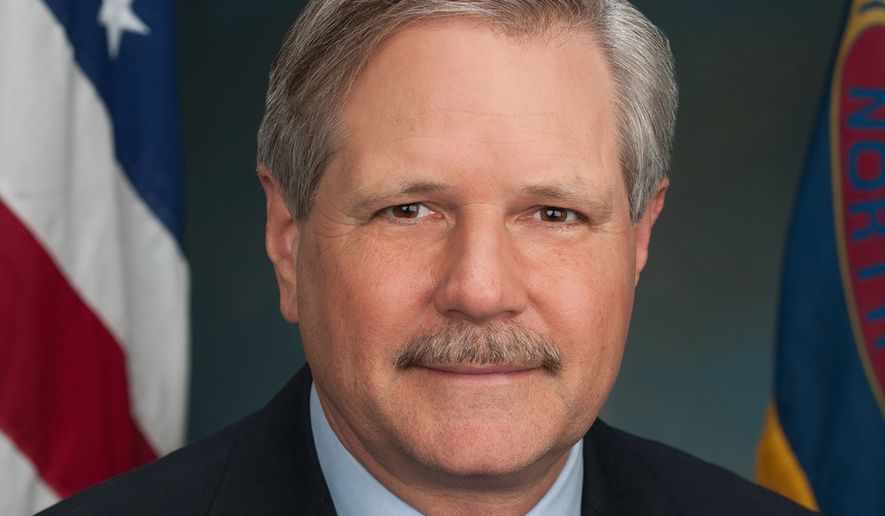OPINION:
The ongoing energy crisis in Europe clearly demonstrates the importance of maintaining U.S. energy security. Nearly every aspect of our economy and quality of life relies on access to affordable and reliable energy, including through our electrical grid. To lose power during severe weather brings a real risk to the lives and well-being of the most vulnerable, while skyrocketing energy bills hit low-income households the hardest. As we watch manufacturing, transportation services and other businesses slow down or even halt in Europe, we must recognize how such issues would further challenge our nation’s already-constrained supply chain, leading to even more inflation. That’s why we’re working to crack the code on carbon capture, utilization and storage (CCUS) technologies, which will empower our nation to continue using all of its abundant energy resources, including coal, oil and natural gas, while also reducing emissions.
Developing this technology and making it commercially-viable may seem like a herculean task, but here’s the good news my home state of North Dakota began working on this effort nearly 15 years ago. It started during my time as governor, when I established the North Dakota CO2 Storage Workgroup in 2008 to create a regulatory framework for carbon storage in the state. Following this, we advanced a bill through the legislature granting this authority to the North Dakota Industrial Commission, which set up the necessary legal and regulatory environment as well as trust funds for state oversight and long-term liability. The state also enacted legislation that granted ownership of the pore space to the owner of the overlying surface estate.
To keep this priority moving forward, I then worked as U.S. Senator to secure approval of the state’s application to be the primary regulatory body for Class VI injection wells, which are used for geologic or long-term CO2 storage. North Dakota became the first of only two states to have this regulatory authority, providing needed permitting certainty to make CCUS technology more economically feasible.
These efforts have helped make North Dakota the ideal location to implement this critical energy technology, both for renewable and traditional energy sources. Currently, there are at least five CCUS projects either operating or in development in North Dakota, including at ethanol facilities run by Red Trail and Blue Flint, the Dakota Gasification Company’s Great Plains Synfuels Plant, Coal Creek Station and Project Tundra at the Milton R. Young Station.
These projects demonstrate the broad-based benefits of CCUS technology. U.S. carbon emissions have already been on a downward trend since 2005. However, demand for fossil energy sources is going to continue increasing globally, with China, India, South Africa and other nations investing in new coal-fired power plants. It’s for these very reasons that Dr. Fatih Birol, head of the International Energy Agency, calls CCUS “the most important technology that exists today.”
To this end, we’ve worked to pass legislation securing the 45Q tax credit, one of the most important incentives to make CCUS projects commercially viable. Moving forward, we need to ensure that the 45Q tax credit effectively supports enhanced oil recovery and long-term CO2 storage, while also working to improve 48A Advanced Coal tax credit to better support CO2 capture retrofit projects.
Through these efforts, North Dakota and our nation are positioned to crack the code on CCUS. That means we can lead the world in decarbonizing coal-fired electricity, among other energy sources, and do it on a commercially viable basis. That’s the right approach for ensuring access to low-cost, dependable sources of energy.
• Senator Hoeven, North Dakota Republican, serves as the state’s 22nd U.S. Senator, following ten years of service as governor. While governor, Hoeven placed a strong focus on North Dakota’s energy industry, naming it one of six pillars for growth. He initiated EmPower ND, the state’s comprehensive energy plan that led North Dakota to become an energy powerhouse and one of the largest energy producing and exporting states in the nation. Now, as a member of the Senate Energy and Natural Resources Committee, as well as the Energy and Water Development Appropriations Subcommittee, he is working to put in place a national energy policy that lets states lead the way. Through a pro-growth business climate, regulatory relief and investments in innovative technologies, Hoeven is empowering America to continue using all of its abundant energy resources, including its coal, oil, and gas reserves, helping to ensure affordable and reliable energy for homes and businesses and supporting our national and economic security.




Please read our comment policy before commenting.